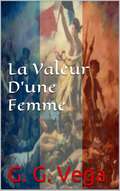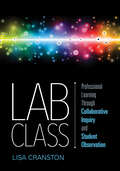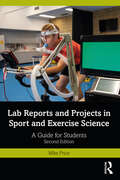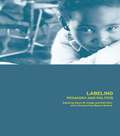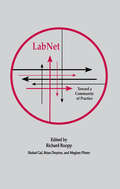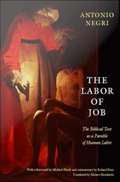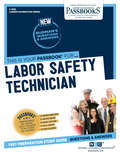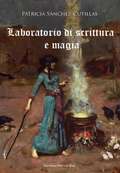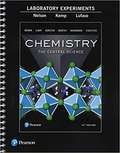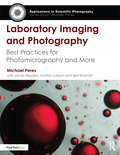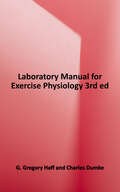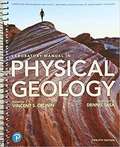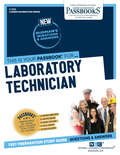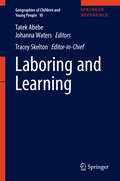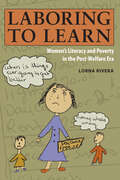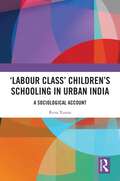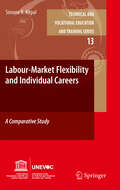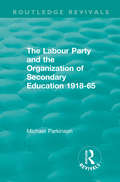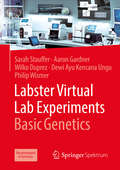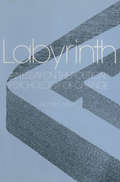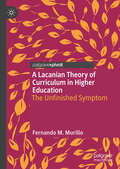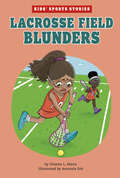- Table View
- List View
La Valeur d'Une Femme
by G. G. Vega Elphanielle HervéMalheureusement, l’histoire de l’humanité après le déluge (Genèse 6 y 7), nous a montré que les femmes ont beaucoup souffert, surtout de l’abus des hommes, un manque de respect et un manque de valorisation de l’identité de la femme. Elles ont souffert de ridicules limitation sociales, intellectuelles et du travail, un manque de considération de tout type, mépris, discrimination et marginalisation. À un moment, les hommes ont commis l’injustice de les appeler le sexe faible, en général, dans le sens du mépris, d’inutilité ou d’une gêne. Ce qui est ironique c’est que chaque homme, après Adam, existe grâce à une femme. Sans le ventre de la femme, ils ne pourraient pas être enfanté, sans la poitrine de la femme, ils ne vivraient pas plus d’une semaine, et sans la protection, l’aide, l’attention et l’éducation de leurs mères, ils ne deviendraient pas des hommes utiles, ils ne pourraient pas être forts, ni se sentir capable de prendre son indépendance. Ce livre a le but de mettre en avant ce que mérite les femmes. Nous, les hommes, ne sommes pas plus, nous avons seulement un autre rôle dans la vie.
The Lab: Creativity and Culture
by David EdwardsNever has the spirit of innovation been more highly valued than today. Around the world, people see the hard-to-teach skills of creativity as the lifeblood of cultural change and the engine of economic development. In The Lab, David Edwards presents a blueprint for revitalizing labs with "artscience"? creative thought that erases conventional boundaries between art and science?to produce innovations that otherwise might never see the light of day. At the heart of The Lab is "cultural incubation," whereby ideas translate with free-wheeling public exchange through a kind of innovation funnel—from educational settings (as in The Lab at Harvard University), to cultural settings (as at Le Laboratoire in Paris and elsewhere), to realizations as innovative products or humanitarian initiatives (within LaboGroup and other translation labs around the globe). With examples ranging from breathable chocolate (Le Whif) to contemporary art installations that explore the neuroscience of fear, Edwards shows how a measured-risk, seed-investment, mentorship-focused network of labs can allow exotic, unexpected ideas to flourish without being killed off at the first hint of impracticality. Unique to the innovation funnel is how creator risk is encouraged but also managed by mentors and others in each lab, so that the most daring ideas—lighting African villages with microbiotic lamps, or cleaning the air with plant-based filters—can emerge within passionate and sometimes inexperienced creative bands. Lively and engaging, replete with anecdotes that bring Edwards's unique personal experience in developing artscience labs to life, The Lab approaches innovation from exciting new angles, finding invigorating ways to repurpose our most creative assets—in scientific exploration, artistic imagination, and business model-building. David Edwards teaches at Harvard University in the School of Engineering and Applied Sciences. His creative work is described at www.davidideas.com.
Lab Class: Professional Learning Through Collaborative Inquiry and Student Observation
by Lisa CranstonSchool-based, collaborative teacher learning that drives student achievement Meaningful growth comes when teachers get to roll up their sleeves and study what’s really going on in classrooms. The Lab Class model helps teachers collaboratively plan, investigate, and develop solutions to a specific problem of practice by observing a host teacher’s classroom through the eyes of students. This book provides observation protocols that encourage teachers to: Plan collaborative inquiry projects by identifying a focus of the inquiry, combing the research literature, and identifying resources needed Observe and analyze student conversations, actions, and products Identify patterns and determine next steps for professional learning
Lab Class: Professional Learning Through Collaborative Inquiry and Student Observation
by Lisa CranstonSchool-based, collaborative teacher learning that drives student achievement Meaningful growth comes when teachers get to roll up their sleeves and study what’s really going on in classrooms. The Lab Class model helps teachers collaboratively plan, investigate, and develop solutions to a specific problem of practice by observing a host teacher’s classroom through the eyes of students. This book provides observation protocols that encourage teachers to: Plan collaborative inquiry projects by identifying a focus of the inquiry, combing the research literature, and identifying resources needed Observe and analyze student conversations, actions, and products Identify patterns and determine next steps for professional learning
Lab Reports and Projects in Sport and Exercise Science: A Guide for Students
by Mike PriceMost science degrees will have a practical or laboratory-based component which will require some sort of final report, whether this be a conventional laboratory report or a final-year dissertation. All of these formats require students to be able to analyse their data in an appropriate way and subsequently convey their key thoughts and information to a third party. Therefore, writing laboratory reports is an essential part any science degree. This new revised edition sees the expansion of statistical examples including initial data checks and assumptions, increased awareness of critical appraisal tools and resources, project planning and a range of 'Challenge yourself' activities to supplement understanding and provides a comprehensive overview of what should be contained within each section of a scientific report, and clearly explains how it should be presented. Written in a friendly and engaging style, it guides the reader through abstracts, literature reviews, methodology, reporting discussions and referencing and contains a wealth of examples and practical advice on how to improve and refine your own writing. From writing a first lab report to preparing a final-year dissertation or postgraduate thesis, sports and exercise science students at all levels will find this book a valuable resource in developing both skill and confidence in scientific communication. Key features include: The layout of the book is designed to reflect that of a typical scientific report to help students plan their own projects. Each chapter includes numerous examples, exercises and activities to engage students and develop skills in each aspect of report writing. The book includes discussion of critical appraisal techniques to help students refine their research questions. All data sets and illustrations used are drawn from the key disciplines in sport and exercise science, including physiology, psychology and biomechanics.
Labeling: Pedagogy and Politics
by Paul Kihn Glenn M. HudakA diverse group of contributors, from the fields of education, psychology, philosophy and cultural studies, explore the social phenomenon of labeling. The authors question the nature of labeling, its contexts and processes, looking in particular at its prescriptive and confining effects. The assumption that labels are neutral and applied neutrally is rejected as the political nature of labeling is revealed.Topics discussed by the contributors include:*the politics of labeling*whiteness as a label for western cultural politics*labeling in institutions*popular culture and labeling*school communities and classrooms and the politics of labeling*labeling and race*sexual labelings*the impact of categorization on our children*labeling in the special education system*immigrants and limited English proficiency groups. Contributors include: Michael Apple, Peter McLaren, Cameron McCarthy and Maxine Greene.
Labnet: Toward A Community of Practice (Technology and Education Series)
by Richard Ruopp Shahaf Gal Brian Drayton Meghan PfisterConnected by a computer telecommunications network, ninth-graders from eight high schools scattered thousands of miles across Alaska work together, building a robot submarine to gather samples from the floor of Prince William Sound. This is high school science as some teachers and educational reformers today envision it -- centered on student projects that encourage learning by doing...supported by modern technology...enriched by collaboration among students and teachers, both face to face and far apart. This example is drawn from LabNet, a three-year effort funded by the National Science Foundation. The project was conducted by Technical Education Research Centers (TERC), a nonprofit educational organization dedicated to improving mathematics and science education. Eventually reaching 562 teachers in 37 states, Puerto Rico, and American Samoa, LabNet had a direct impact on their classroom practice. In a follow-up evaluation, the majority said they had assigned their students more projects and had used LabNet's telecommunications network to exchange project ideas with other teachers. This book is the story of LabNet as told by its editors, with 14 additional essays on science projects -- both theoretical and practical -- by LabNet teachers and TERC staff.
The Labor of Job: The Biblical Text as a Parable of Human Labor
by Antonio NegriIn The Labor of Job, the renowned Marxist political philosopher Antonio Negri develops an unorthodox interpretation of the Old Testament book of Job, a canonical text of Judeo-Christian thought. In the biblical narrative, the pious Job is made to suffer for no apparent reason. The story revolves around his quest to understand why he must bear, and why God would allow, such misery. Conventional readings explain the tale as an affirmation of divine transcendence. When God finally speaks to Job, it is to assert his sovereignty and establish that it is not Job's place to question what God allows. In Negri's materialist reading, Job does not recognize God's transcendence. He denies it, and in so doing becomes a co-creator of himself and the world. The Labor of Job was first published in Italy in 1990. Negri began writing it in the early 1980s, while he was a political prisoner in Italy, and it was the first book he completed during his exile in France (1983-97). As he writes in the preface, understanding suffering was for him in the early 1980s "an essential element of resistance. . . . It was the problem of liberation, in prison and in exile, from within the absoluteness of Power. " Negri presents a Marxist interpretation of Job's story. He describes it as a parable of human labor, one that illustrates the impossibility of systems of measure, whether of divine justice (in Job's case) or the value of labor (in the case of late-twentieth-century Marxism). In the foreword, Michael Hardt elaborates on this interpretation. In his commentary, Roland Boer considers Negri's reading of the book of Job in relation to the Bible and biblical exegesis. The Labor of Job provides an intriguing and accessible entry into the thought of one of today's most important political philosophers.
Labor Safety Technician: Passbooks Study Guide (Career Examination Series)
by National Learning CorporationThe Labor Safety Technician Passbook® prepares you for your test by allowing you to take practice exams in the subjects you need to study. It provides hundreds of questions and answers in the areas that will likely be covered on your upcoming exam.
Laboratorio di scrittura e magia
by Patricia Sánchez-CutillasÈ un libro di scrittura creativa che relaziona la letteratura alla magia. La magia dei momenti del giorno, l'energia delle dee Luna e degli dei Sole, l'eterno ritorno, le date magiche, persino i fenomeni atmosferici sono elementi che puoi utilizzare per scrivere, per inventare le tue storie o per rafforzarle. Questo libro ti insegnerà a farlo ed è dedicato agli amanti della cultura e della conoscenza e a coloro a cui piace la magia della vita e della letteratura. E alla fine di ogni tema ci sono delle proposte per scrivere e mettere in pratica ciò che si è appreso.
Laboratory Experiments Chemistry: The Central Science
by John H. Nelson Kenneth C. Kemp Michael LufasoThis manual contains 43 finely tuned experiments chosen to introduce basic lab techniques and to illustrate core chemical principles. In the 14th Edition, all experiments were carefully edited for accuracy, safety, and cost. Pre-labs and questions were revised and new experiments added concerning solutions, polymers, and hydrates. Each of the experiments is self-contained, with sufficient background material, to conduct and understand the experiment. Each has a pedagogical objective to exemplify one or more specific principles. <P><P> Because the experiments are self-contained, they may be undertaken in any order, although the authors have found in their General Chemistry course that the sequence of Experiments 1 through 7 provides the firmest background and introduction. The authors have included pre-lab questions to answer before starting the lab. The questions are designed to help in understanding the experiment, learning how to do the necessary calculations to treat their data, and as an incentive for reading the experiment in advance. These labs can also be customized through Pearson Collections, our custom database program.
Laboratory Imaging & Photography: Best Practices for Photomicrography & More (Applications in Scientific Photography)
by Michael PeresLaboratory Imaging and Photography: Best Practices for Photomicrography and More is the definitive guide to the production of scientific images. Inside, the reader will find an overview of the theory and practice of laboratory photography, along with useful approaches to choosing equipment, handling samples, and working with microscopic subjects. Drawing from over 150 years of combined experience in the field, the authors outline methods of properly capturing, processing and archiving the images that are essential to scientific research. Also included are chapters on applied close-up photography, artificial light photography and the optics used in today’s laboratory environment, with detailed entries on light, confocal and scanning electron microscopy. A lab manual for the digital era, this peerless reference book explains how to record visual data accurately in an industry where a photograph can serve to establish a scientific fact. Key features include: Over 200 full-color photographs and illustrations A condensed history of scientific photography Tips on using the Adobe Creative Suite for scientific applications A cheat sheet of best practices Methods used in computational photography
Laboratory Manual for Exercise Physiology
by G. Gregory Haff Charles DumkeLaboratory Manual for Exercise Physiology, Third Edition With HKPropel Access, provides guided lab activities for in-person or virtual settings that allow students to translate their scientific understanding of exercise physiology into practical applications.
Laboratory Manual in Physical Geology
by Vincent S. Cronin Dennis Tasa American Geological Institute Staff National Association of Geoscience Teachers StaffLaboratory Manual in Physical Geology offers an inquiry and activities-based approach that builds skills and gives students a complete learning experience in the lab. This user-friendly lab manual examines the basic processes of geology and their applications to everyday life, featuring an exceptional illustration program by Dennis Tasa and contributions from over 200 highly regarded geologists and geoscience educators. <P><P> With the 12th Edition, lead author Vince Cronin and the newly formed NAGT editorial panel deliver the latest data and science, including new climate/environmental change and hazards/disasters lab activities.
Laboratory Technician: Passbooks Study Guide (Career Examination Series #C-2496)
by National Learning CorporationThe Laboratory Technician Passbook® prepares you for your test by allowing you to take practice exams in the subjects you need to study. It provides hundreds of questions and answers in the areas that will likely be covered on your upcoming exam, including but not limited to: basic laboratory equipment and glassware; principles of biology, chemistry and general science; general laboratory principles and practices; record keeping; and more.
Laboring and Learning
by Tatek Abebe Johanna WatersThis volume incorporates ground-breaking new academic perspectives on the contributions that children and young people make to societies around the world, with a particular focus on learning and work. The chapters in the volume offer conceptual and empirical insights into how young people learn to labour, and the complex social, spatial, temporal, institutional and relational processes that informs their engagements in daily, generational and social reproduction. The editors have intentionally avoided using the terms 'education' and 'employment' in the title, as this volume is an attempt to capture the multitude of ways, spaces and contexts (not just 'formal') in which learning takes place and work is carried out. Here, learning indicates education in the broadest possible sense, to incorporate not just formal schooling and the acquisition of institutionally recognised academic knowledge and credentials, but also informal learning (including socialization and the on-the-job acquisition of skills that takes place almost imperceptibly, over time). In addition to the theoretical perspectives this volume brings on young people's education and work, other prominent conceptual themes present throughout the work are mobilities, transitions and gender. Following four initial chapters that engage with conceptual issues, the remainder of the volume is divided into two sections, entitled 'spaces of labouring and learning' and 'livelihoods, transitions and social reproduction'. Within these sections, a broad spectrum of empirical chapters demonstrates how young people live, learn and labour in Africa, Asia, Europe and Latin America. These include, among others, geographies of education; interface between migration, learning and livelihoods; cultural politics of human capital formation; schooling and work; citizenship education; families and parenting; socialization and informal education; education-induced migration; processes and practices of inclusion and exclusion in educational institutions; part-time work; domestic work; care work; informal livelihoods; entrepreneurship; social transitions; and a wide range of social, economic, cultural, political (structural) forces that intersect and dissect these topics. As the reader will become aware, there is no such thing as a standard educational or work trajectory, a 'normal' transition or a straight forward relationship between work, education and social reproduction. Indeed, one of the aims of the volume is deliberately to showcase the diversity that young people's lives hold in this regard.
Laboring to Learn: Women's Literacy and Poverty in the Post-Welfare Era
by Lorna RiveraThe American adult education system has become an alternative for school dropouts, with some state welfare policies requiring teen mothers and women without high school diplomas to participate in adult education programs to receive aid. Currently, low-income women of color are more likely to be enrolled in the lowest levels of adult basic education. Very little has been published about women's experiences in these mandatory programs and whether the programs reproduce the conditions that forced women to drop out in the first place. Lorna Rivera bridges the gap with this important study, the product of ten years' active ethnographic research with formerly homeless women who participated in adult literacy education classes before and after welfare reform. She draws on rich interviews with organizers and participants in the Adult Learners Program at Project Hope, a women's shelter and community development organization in Boston's Dudley neighborhood, one of the poorest in the city. Analyzing the web of ideological contradictions regarding "work first" welfare reform policies, Rivera argues that poverty is produced and reproduced when women with low literacy skills are pushed into welfare-to-work programs and denied education. She examines how various discourses about individual choice and self-sufficiency shape the purposes of literacy, how low-income women express a sense of personal responsibility for being poor, and how neoliberal ideologies and practices compromise the goals of critical literacy programs. Throughout this study, the voices and experiences of formerly homeless women challenge cultural stereotypes about poor women, showing in personal and structural terms how social and economic forces shape and restrict opportunities for low-income women of color.
‘Labour Class’ Children’s Schooling in Urban India: A Sociological Account
by Reva YunusDrawing upon classroom ethnography and interviews with parents and pupils in urban central India, this book offers systematic sociological analyses of childhood, labour and schooling in postcolonial, post-liberalisation India. It combines insights from economic sociology, political economy and feminist critiques of capitalism, caste patriarchy and globalisation to theorise the relationship between educational experience and socioeconomic inequalities. A vital intervention in dominant development discourses centring on the relationship between poverty and poor children’s schooling in the global South it unpacks poverty as a structural condition shaped by class and caste relations. Unravelling the interplay of poverty, caste patriarchy and shifts in the gendered division of reproductive labour it challenges both the ‘girl effect’ narrative as well as the ‘school/labour’ binary. It offers insights into ‘labour class’ families’ experience of urban informal work enabling a critical account of the gendered place of school in children’s lives and render visible poor parents’ and pupils’ efforts to ensure educational success. Thick descriptions of pedagogic and disciplinary processes and social relations in the classroom allow it to grapple with teachers’ ‘deficit view’ of the labour class as well as the impact of stratified schooling on teachers’ working conditions and teacher-pupil relations. The book presents a rare account of teenaged children’s gendered modes of negotiation of social relations at school and home, waged and unwaged work, economic and educational deprivation and pedagogic practices in the classroom. It will appeal to scholars interested in the sociology of education and childhood, gender and caste inequalities, international development, poverty and urban informal work.
Labour-Market Flexibility and Individual Careers
by Simone R. KirpalWith labour markets across the world and even in social democratic Europe in a state of unprecedented flux, this exhaustive study addresses the problem of how to balance job market demands, personal career interests and private life becomes a central issue for millions of employees. So how do modern work and employment arrangements restructure individual careers and what is required of individuals in order to manage career transitions successfully over time? This is one of very few in-depth empirical studies to analyze how labour market trends, organisational change and the subjective work orientations of individuals interact. The author's detailed assessment is based on a comparison of the structural contexts, work orientations and employment histories of nurses and ICT technicians in Germany and the UK. These two core service occupations, as well as the national contexts of the two European nations, have quite different working environments and vocational traditions. Nursing is an institutionalized semi-profession with clear criteria of qualification and career continuity, while information and communication technology (ICT) is a new, evolving field with varied skill backgrounds and high job mobility. To arrive at an understanding of how individual career trajectories are changing, this book closely examines the interplay of labour market demands, employees' work and career orientations and the development of their skills. It records the ways in which employees adapt to increased labour market flexibility, which, on the one hand, induces discontinuities of careers, employment and work, and on the other, generates new skill requirements and learning expectations, as well as unforeseen opportunities.
The Labour Party and the Organization of Secondary Education 1918-65 (Routledge Revivals)
by Michael ParkinsonOriginally published in 1970, Michael Parkinson examines the Labour Party’s attitude towards secondary education in general and comprehensive schooling in particular and shows the effect of the party’s philosophy on the question of education and its social importance. The Labour Party is seen both as a policy-maker with the power to implement policies and as a pressure group with power only to influence. The case study provides valuable background reading to the controversies over comprehensive education at the time.
Labour Welfare And Industrial Relations
by Annamalai UniversityThe term 'Labour Welfare' is very comprehensive and includes various types of activities undertaken for the economic, social, intellectual or moral benefit of the labour community, the activities are so varied that the concept of labour welfare may vary from country to country. The royal commission on labour in India (1931) rightly pointed out: "the term welfare as applied to the industrial workers is one which must necessarily be elastic, bearing a somewhat different interpretation in one country from another, according to the different social customs, the degree of industrialisation and educational development of the worker". Hence, this book try’s to elaborate the concepts from layman’s perspective.
Labster Virtual Lab Experiments: Basic Genetics
by Sarah Stauffer Aaron Gardner Wilko Duprez Dewi Ayu Ungu Philip WismerThis textbook helps you to prepare for both your next exams and practical courses by combining theory with virtual lab simulations. With the “Labster Virtual Lab Experiments” book series you have the unique opportunity to apply your newly acquired knowledge in an interactive learning game that simulates common laboratory experiments. Try out different techniques and work with machines that you otherwise wouldn’t have access to.In this volume on “Basic Genetics” you will learn how to work in a laboratory with genetic background and the fundamental theoretical concepts of the following topics:Mendelian InheritancePolymerase Chain ReactionAnimal GeneticsGene ExpressionGene RegulationIn each chapter, you will be introduced to the basic knowledge as well as one virtual lab simulation with a true-to-life challenge. Following a theory section, you will be able to play the corresponding simulation. Each simulation includes quiz questions to reinforce your understanding of the covered topics. 3D animations will show you molecular processes not otherwise visible to the human eye. If you have purchased a printed copy of this book, you get free access to five simulations for the duration of six months. If you’re using the e-book version, you can sign up and buy access to the simulations at www.labster.com/springer.If you like this book, try out other topics in this series, including “Basic Biology”, “Basic Biochemistry”, and “Genetics of Human Diseases”.
Labyrinth: An Essay on the Political Psychology of Change
by R.E. WilsonTo receive tenure, college and university professors have long been required to write scholarly monographs or articles, engage in serious research and teach effectively. This collection of articles marks the first effort to evaluate the place of digital scholarship in this process.
A Lacanian Theory of Curriculum in Higher Education: The Unfinished Symptom
by Fernando M. MurilloThis volume presents a distinctively Lacanian psychoanalytic approach to the theorizing, understanding, and critique of curriculum in higher education. In this work, the author presents the main theories of curriculum in the current discourse, develops a notion of critique, and applies it to existing global guidelines for curriculum reform. Relying on the architectonic of the subject as developed across the work of Jacques Lacan—expressed in the registers of the Symbolic, the Imaginary, and the Real—the author provides a new approach to understanding curriculum in terms of the psychic dynamics that explain its workings.
Lacrosse Field Blunders (Kids' Sports Stories)
by Dionna L. MannMyra encourages her best friend, Gabi, to join the lacrosse team. But learning the sport isn’t easy for Gabi. She struggles to control the ball, costing the team a painful loss. Myra, a star player, loses patience with her best friend. Will Gabi and Myra learn to be more understanding of each other before their friendship is lost?
